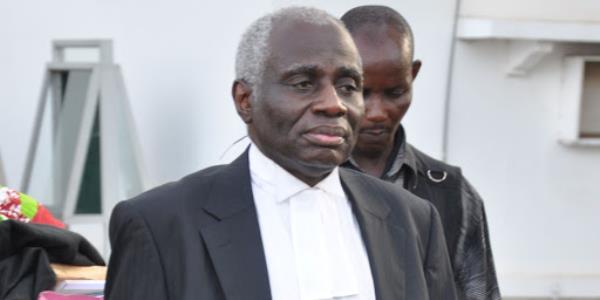16 years ago today, Tsatsu Tsikata was wrongfully convicted

Today, June 18, marks exactly 16 years since the wrongful conviction of esteemed legal colossus, Tsatsu Tsikata.
On this day in 2008, an Accra High Court found Tsatsu Tsikata guilty of willfully causing financial loss to the state, a conviction that shocked the nation and sent ripples through Ghana’s legal and political landscape.
On that fateful day, Tsikata stood in court without his lawyer, who was absent due to a scheduled interlocutory application.
Tsikata intended to inform the court of his lawyer’s absence and seek an adjournment and so there was no anticipation of a judgment, as two other critical applications were pending at the Court of Appeal and the Supreme Court.
Notably, the Supreme Court was deliberating on the commercial viability of Valley Farms, the cocoa-producing company at the heart of Tsikata’s charges.
He was accused of unlawfully using the Ghana National Petroleum Corporation (GNPC) to guarantee a loan for Valley Farms while serving as its Chief Executive Officer.
Despite the pending applications and the incomplete trial, the High Court, in an unexpected turn of events, convicted and sentenced Tsikata to five years on each of the four counts, to be served concurrently.
This sudden decision came just days before the Supreme Court was set to rule on the commercial viability of Valley Farms, a ruling that would eventually favor Tsikata.
Even the Attorney General later admitted at the Supreme Court that Valley Farms was indeed commercially viable, a crucial detail that Tsikata’s lawyer had sought to include in the trial evidence.
The political undertones of the conviction were evident.
On June 18, 2008, Tsikata drove himself to court, expecting another adjournment.
However, the state was prepared for a different outcome.
For the first time since the trial began in 2002, the Attorney General appeared in court with a full retinue of legal officers.
The courthouse was surrounded by police officers, and the media buzzed with anticipation.
The only person unaware of the unfolding drama was Tsatsu Tsikata, who was subsequently taken to Nsawam Prisons without his family’s knowledge.
Tsikata’s time at Nsawam Prisons became a well-known chapter in his life story.
Despite the harsh conditions, he refused a presidential pardon from President John Agyekum Kufuor, choosing instead to trust in the judicial system’s eventual vindication.
His faith was rewarded on November 30, 2016, when the Appeal Court overturned all his convictions and sentences.
In the face of adversity, Tsikata’s belief in justice remained unshaken.
He famously remarked, “Justice will again be found in the court and all righteous people will support it. I think justice has been found in the court.”
Tsatsu Tsikata (appellant) was the CEO of the Ghana National Petroleum Company (GNPC), which was set up by the Ghana Petroleum Corporation Law, 1983 (PNDCL 64).
In March 1991, the appellant entered into a contract with Caisse Française (CF) to act as a guarantor for Valley Farms Co Ltd. (VFC), a limited liability company producing high-quality cocoa in Ghana, for a loan granted by CF.
In 1993, the Criminal Code (Amendment) Act was (Act 458) was passed to amend the Criminal Code, 1960 (Act 29). Section 179A(3)(a) of Act 29 as amended by Act 458, provided that, “any person through whose wilful, malicious or fraudulent action or omission, a) the State incurs a financial loss commits an offence.”
In 1996, VFC defaulted in its loan payments and GNPC was called upon to make good its guarantee.
GNPC made the payments required. The payments made on behalf of VFC were considered to be a financial loss to the State and to have been made on the appellant’s authority.
Source: www.ghanaweb.com





